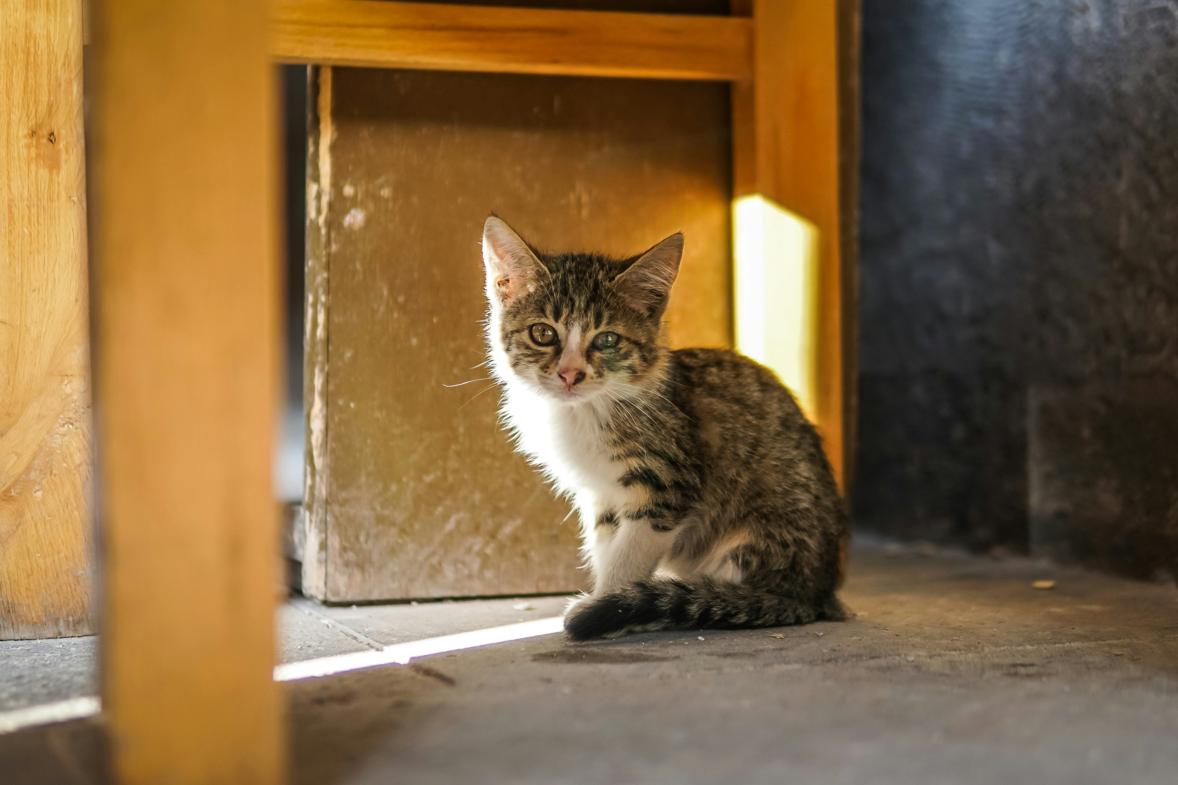
Can Domestic Cats Survive Outside? The Shocking Truth Every Cat Owner Needs to Know!
Summary. The article explores the question of whether domestic cats can survive outdoors, considering their natural instincts and adaptability. It highlights that while cats possess hunting skills and an ability to fend for themselves, the risks of outdoor life—such as predators, traffic, disease, and harsh weather—pose significant threats to their safety and health. The piece emphasizes that domesticated cats lack the experience and survival training of their wild counterparts, making them vulnerable if left to roam freely. Ultimately, the article advocates for responsible cat ownership,
Can domestic cats survive outside? This question resonates with many cat owners and animal enthusiasts alike. While cats are often perceived as independent creatures, their survival in the great outdoors is far from guaranteed. Factors such as their hunting instincts, environmental dangers, and local wildlife play significant roles in their well-being. In this article, we will explore the pros and cons of letting cats roam free outside, the potential risks they face, and essential tips to ensure their safety, whether they stay indoors or venture outside.
Whether you’re an experienced cat owner or contemplating bringing a feline friend into your life, the insights provided here are essential for making informed decisions about your cat’s lifestyle. Let’s delve into the considerations that surround this critical issue for our beloved pets.
Can Domestic Cats Survive Outside?
Can Domestic Cats Survive Outside? As charming as domestic cats may be, a frequent query among pet owners is whether these beloved companions can survive outside in a world filled with both beauty and danger. While it’s tempting to let them roam freely—much like the feral cats who navigate urban and rural landscapes—this decision warrants careful consideration. Historically, domesticated cats have descended from wild ancestors who thrived on instincts that current house pets might not fully possess. Although outdoor exposure can provide them with mental stimulation and physical exercise, the risks—from traffic and predators to diseases and harsh weather—quickly mount up.
Interestingly, many cat owners report a mix of experiences; some cats return home happy and healthy, while others face grave challenges. Have you considered your cat’s temperament? Outdoor survival can differ significantly based on their adaptability and existing skills. For instance, cats with robust instincts may navigate outdoor life with finesse, perhaps relishing the scents and sounds of nature, or even engaging with native wildlife. Conversely, more timid cats might feel overwhelmed by the unpredictability of the outside world, potentially leading to stress or even a desire to flee. You might wonder about the implications of allowing your cat outside.
On one hand, research suggests that indoor environments can lead to behavioral issues resulting from boredom and lack of stimulation. On the other hand, studies indicate that feline exposure to outdoor elements can increase the risk of injury and exposure to diseases, such as feline leukemia and feline immunodeficiency virus. Isn’t it essential to weigh these outcomes against each other, especially if you’re considering a balance between engaging activities for your cat and ensuring their safety? Imagine crafting a safe outdoor space, like a catio, which allows your pet a taste of nature without the inherent risks of wandering unsupervised.

People Also Ask
How long can a domestic cat survive outside?
The survival of a domestic cat outside can vary widely based on several factors, including the cat’s health, age, temperament, and the environment in which it finds itself. Generally, here are some points to consider:1. Environment: If the outdoor environment has access to shelter, water, food sources, and fewer predators, a cat may survive for a longer period. Conversely, harsh weather conditions, lack of food, and the presence of predators can significantly reduce survival time. 2.
Health and Age: Cats that are healthy and experienced at living outdoors may survive better than sick, young, or elderly cats. Kittens, for example, are particularly vulnerable and may not last long without care. 3. Adaptation: Cats that have lived outdoors for some time and have learned to hunt and scavenge may fare better than indoor-only cats that are unfamiliar with survival tactics in the wild. 4.
Duration: In a worst-case scenario, a domestic cat might struggle to survive outside for just a few days to weeks without a reliable source of food and water. In a more favorable situation, they might be able to survive for months. Overall, while some cats can adapt and survive outside, domestic cats are generally not well-suited to life outdoors due to their domestication and reliance on human care. If a domestic cat goes missing, it’s crucial to search for it as soon as possible, as the risks of injury, illness, and starvation increase over time.
Will a house cat be ok outside?
Allowing a house cat outside can pose several risks, and whether it’s safe can depend on various factors. Here are some things to consider:1. Safety from Predators: Outdoor cats are at risk from predators such as dogs, larger birds, and wildlife. 2. Traffic Hazards: Roads and traffic can be dangerous for outdoor cats, leading to potential injury or death. 3. Disease Risks: Outdoor cats can be exposed to various diseases, parasites (like fleas and ticks), and potentially harmful interactions with other animals. 4.
Environmental Hazards: Cats can encounter toxic plants, chemicals, extreme weather, and other environmental dangers outside. 5. Behavioral Changes: An outdoor environment can encourage behaviors like hunting, fighting, and territorial disputes, which might not be safe or ideal for your cat. 6. Microchipping and Identification: If you allow your cat outside, ensuring it is microchipped and has proper identification can help it return home if lost.
If you want your house cat to experience the outdoors, consider alternatives like a cat harness and leash for supervised walks, building a catio (an enclosed outdoor space), or having a safe, enclosed garden area for them to explore. Always assess the environment and your cat’s personality before making the decision.
Can a domesticated cat survive in the wild?
A domesticated cat may be able to survive in the wild, but it faces several challenges and may not thrive as well as a feral cat that has adapted to living in such conditions. Here are some factors to consider:1. Hunting Skills: Some domestic cats retain natural hunting instincts, but they may not have the same level of skill or experience as feral cats, which are accustomed to hunting for their food. 2. Socialization: Domesticated cats are often more reliant on humans for companionship and care.
In the wild, they may struggle with social interactions or defending themselves against other animals without the support of a social group. 3. Health and Safety: Domesticated cats may not be prepared for the dangers of the wild, including predators, infections, and harsh environmental conditions. They may also be at risk from diseases that they have not previously encountered. 4. Foraging: While they can eat small animals, insects, and plants, some domestic cats might struggle to find an adequate food supply in the wild, especially if they are not accustomed to foraging. 5.
Climate Adaptation: Domesticated cats may have a harder time adapting to extreme weather conditions if they are not used to a life outdoors. Overall, while a domesticated cat has some instinctual abilities that could help it survive, its chances of thriving in the wild are generally much lower than those of a feral cat that is naturally adapted to that environment
Can cats live outside permanently?
Cats can live outside, but permanent outdoor living has significant challenges and risks. Here are several important considerations:1. Safety: Outdoor cats face various dangers including predators (like coyotes, hawks, and other animals), traffic, and potential hazards like toxic plants or chemicals. 2. Weather: Extreme temperatures can be dangerous for cats. They need shelter from rain, snow, heat, and cold to stay safe and healthy. 3.
Health: Outdoor cats are at higher risk for diseases, parasites (like fleas and ticks), and injuries from fights with other animals. Regular veterinary care can be more difficult for outdoor cats. 4. Food and Water: Cats need a consistent source of food and clean water. It’s challenging for them to find adequate nutrition and hydration outdoors, especially if they are relying on hunting. 5. Behavior: Cats are territorial animals and may conflict with other cats in the area.
Outdoor living can be stressful if they are constantly encountering other cats or threats. 6. Reproduction: Unspayed or unneutered outdoor cats can contribute to overpopulation and face challenges related to finding mates and raising litters. While some cats can adapt to living outdoors, they generally thrive better as indoor pets with occasional outdoor access (i. e. , supervised time in a safe, enclosed area or on a harness). If you are considering allowing your cat to live outside, it is crucial to ensure their safety and well-being. Providing a secure
Wrapping Up
Are you torn between letting your whiskered companion roam free or keeping them safe indoors? The question of whether domestic cats can survive outside is one that every cat owner grapples with. Surprisingly, the truth reveals a world of lurking dangers—from predators to traffic and diseases—that domestic cats are ill-equipped to handle. Understanding this vital concern isn’t just about peace of mind; it’s a matter of life and death for your furry friend. The risks are higher than you might think, and failing to recognize them could lead to heartbreaking consequences.
The reality is, while our feline friends are adept hunters, they’re also at the mercy of an unforgiving environment. In this post, we’ll dive into the complexities of outdoor life for domestic cats, revealing stark statistics, practical solutions, and innovative alternatives to outdoor access that will keep your feline safe and happy. From nutritional insights to engaging indoor activities, we’ve got you covered! So, before you open that door to the great outdoors, let’s explore the ins and outs of whether domestic cats can survive outside. Your kitty deserves the best, and getting informed is the first step!
Answers To The Most Common Questions
Can domestic cats survive outside?
While domestic cats can survive outside, they face numerous dangers such as traffic, predators, disease, and harsh weather conditions, which can significantly shorten their lifespans.
What should I do if my cat is outdoors?
If your cat is outdoors, ensure they have access to food, water, and shelter, and try to bring them indoors as soon as possible to keep them safe from potential hazards.
Reference:
https://www.peta.org/about-peta/why-peta/outdoor-cats/
https://www.animalhumanesociety.org/news/can-outdoor-cats-survive-minnesotas-sub-zero-temps
https://www.humanesociety.org/resources/how-care-outdoor-cats-winter
https://www.alleycat.org/community-cat-care/feral-cats-belong-outdoors/







